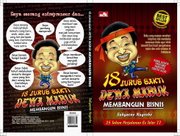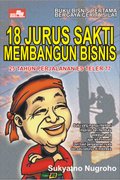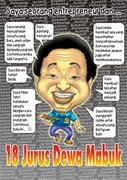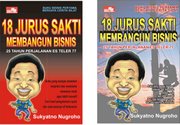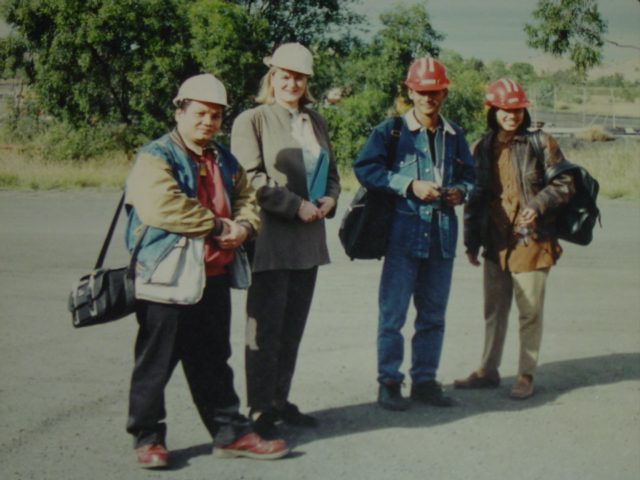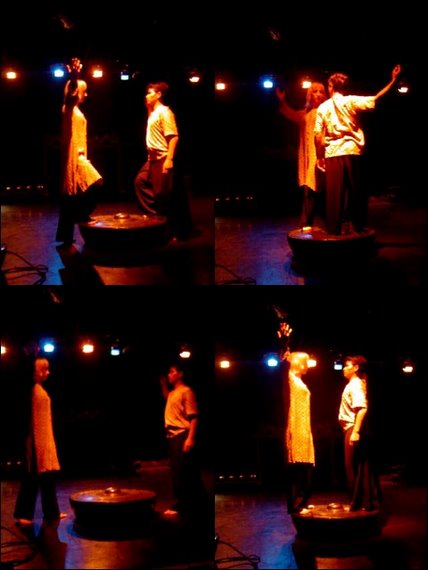While the UK has Anita Roddick, an ordinary housewife and environmentalist who set up The Body Shop, Indonesia should be proud of having Dr. Retno Iswari Tranggono, SpKK who is a housewife, dermatologist, established cosmetics scientist and producer of well-known cosmetics brand Ristra.
Retno's interest in the cosmetics industry started when she, as a fifth-year student of the University of Indonesia's School of Medicine, was asked by a neighbor to become an instructor at her skin care school Viva Health and Beauty Institute. The neighbor, Bo Tan Tjoa, better known as Ibu Antari, was the co-owner of skin care firm Viva Kosmetic in Semarang.
After completing a specialized program in dermatology at the University of Indonesia's School of Medicine in 1968, she proposed setting up a department specifically dedicated to handling cosmetics and beauty problems. She received support from the school's head of the dermatology and venereology department, Prof. M. Djoewari, who said: "If you believe doctors will be interested in this science and that it is important to the public, go ahead and set up."
On April 1, 1970, the sub-department of cosmetics and skin surgery (now called the cosmeto-dermatology sub-department) was officially set up with Dr. Retno as the head. Within a short time, this sub-department became a favorite. Many doctors have taken this sub-specialization because many patients want beauty treatment.
Before the establishment of the sub-department, the dermatology and venereology department was not popular and dermatologists were considered "poor doctors". "Doctors were reluctant to join this department because of the additional label of venereology. So, when I applied for this department, I was readily accepted. At that time, there were only three females, including myself," said Dr. Retno, who was born in Jakarta on Nov. 17, 1939.
After practicing for quite a long time as a dermatologist, it became clearer to Dr. Retno that there were problems in the skin treatment applied in Indonesia. The treatment method was

based on knowledge dating back to colonial times while the pharmaceutical world did not support skin treatment as not many drugs for skin treatment were available. Also, imported products did not necessarily suit skin in the tropics. In short, there were problems in skin treatment in this country. Even the medicine available to fight acne was ineffective. "I often ask my patients how they clean their faces. They never used soap to clean their faces because their beauticians prohibit it. If they consult a doctor, they are advised to stop using cosmetics and are referred to a beauty salon," said Retno, who has three children and six grandchildren.
Even at a beauty salon, the practice was wrong as soap was not allowed to be used. "That is the principle prevailing in Holland, where the climate is cold and dry. In Holland, for example, you shouldn't wash your face but instead use cold cream. In a tropical country, if you apply cold cream and powder to your face, acne will appear," she added.
According to Retno, there are four factors affecting the use of cosmetics that have good or bad results. These are human beings, cosmetics, the environment and the correlation between human beings, cosmetics and the environment. Dr. Retno calls this knowledge "The Science of Beauty".
The human beings factor is concerned with the difference in skin color. Asians generally have olive skin while European have fair skin. People from different races also have different beauty behaviors. As a result, the effects of cosmetics will also differ. Insufficient knowledge about cosmetics will lead to mistakes in their usage. As for the cosmetics factor, this is related, for example, to poor raw materials, formulation not suiting skin type and the environment and an unhygienic and unsophisticated manufacturing process that may lead to irritation, allergies and acne. The third factor is the environment. In tropical countries like Indonesia, people perspire more and their skin may be oily. That's why when Asians use cold cream and creamy moisturizer made specifically for the European climate, the moisturizer can clog the pores and cause acne.
In 1983, Retno was at a crossroads: continue teaching and pursuing her studies to be a professor or go into the industry to produce quality cosmetics. Retno and her husband, Dr. Suharto Tranggono, SpKJ, SpKP, a psychiatrist working for the Indonesian Air Force, eventually opted to build their business. This business, now under the flagship of PT Ristra Indolab, began in the garage of their house in the Air Force compound on Jl. Rajawali Selatan, North Jakarta, in 1983.
As Indonesia has a tropical climate with a lot of sunshine, Indonesians characteristically have brown skin. To the majority of the public, however, beautiful skin is fair. That's why special cosmetics are needed that suit Asian's olive complexion and tropical environment. All Ristra's products, ranging from skin treatment, hair treatment to makeup, are produced to suit the characteristics of the skin of Asians.
In the late 1990s, Ristra produced as many as 82 items. Every Ristra product must reflect its scientific quality. That's why in 1983 Retno set up a research and development laboratory, PT Ristra Indolab, which is headed by a pharmacist who graduated in Germany, Dr. Rosali Setiawan. Retno is involved in the laboratory's activities to produce new formulas. She introduces concepts for new products, tests the technical feasibility of these products and guarantees the effectiveness and security of the products.
Sometimes, Retno herself leads the R&D activities. One outstanding achievement is the finding of PH Balanced and Radical Protection Factor concept, which has won recognition from the international world. Her latest finding, which is based on nano technology, is the formulation for PCO (Proanthocyanidin Oligimer) as the main material for Platinum Skin Care, which, when combined with Nanotope, can go through the epidermic layer so that active substances work effectively. With this achievement, Ristra has become Indonesia's first cosmetics company to apply nanotechnology.
In order to ensure a re-generation in the company's management, Retno asked her son, Krisna Nindita Tranggono, a master graduate of several American universities, to join the company.
As cosmeto-dermatology leans more toward instant beauty, Dr. Retno took the initiative to set up the Ristra Institute of Skin Health and Beauty Science in 2006 to ensure that cosmeto-dermatology will not deviate too much from its original track. The people who attend this institute are doctors and medical personnel dealing in beauty matters. "For one whole week they are taught the principles of medical cosmetics. These principles must be understood so that they will not be duped by a quick and instant way to make them rich," she said.
In appreciation of her outstanding achievements in the cosmetics industry, BRI Platinum Card conferred on Dr. Retno the "Life Time Achievement Award" on Dec. 5, 2007. When asked about her ideals, Dr. Retno simply said, "I would like Indonesians to have clean and healthy skin. It is not beauty that comes instantly but beauty that will be long-lasting." (
Ari Satriyo Wibowo)
 "All countries must take vigorous, immediate and collective action to curb runaway energy demand. The next ten years will be crucial for all countries... We need to act now to bring about a radical shift in investment in favor of cleaner, more efficient and more secure energy technologies."
"All countries must take vigorous, immediate and collective action to curb runaway energy demand. The next ten years will be crucial for all countries... We need to act now to bring about a radical shift in investment in favor of cleaner, more efficient and more secure energy technologies." 







